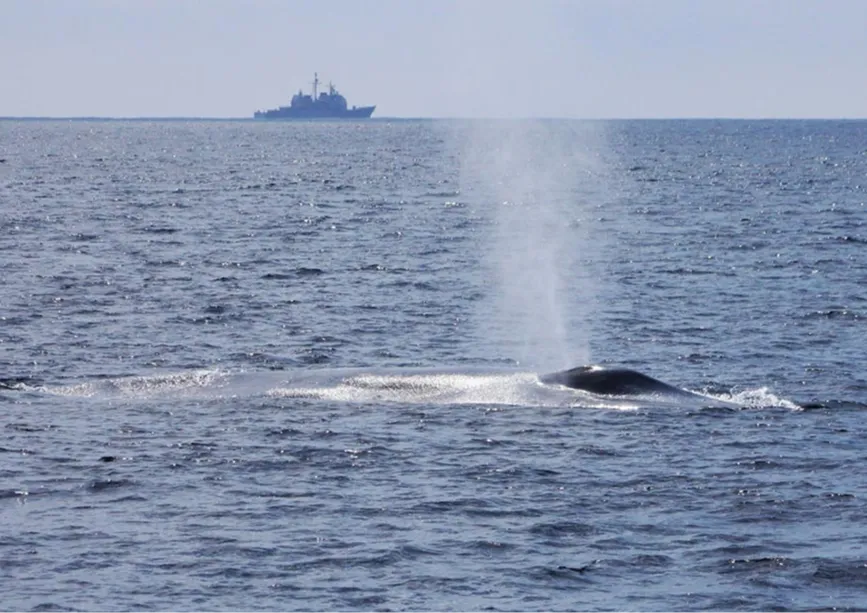-
CENTRES
Progammes & Centres
Location
As the US’s global leadership in upholding the rules-based order will be stretched, regional actors will have to rise to the occasion and maintain order and stability in 2024

As the season of election unfolds in 2024, competing norms and narratives, values and ideologies, political rhetoric and strategic realities will further sharpen Indo-Pacific geopolitics—testing old alliances and alignments. Taiwan’s mandate in favour of Democratic Progressive Party (DPP) for the third time has certainly unnerved Beijing, and a sharp escalation of tensions will add to regional disorder in 2024. While many in the region applauded Taiwan’s democracy, Beijing has been at work to weaken Taipei’s tally of diplomatic allies.
Furthermore, as the rules-based international order gets tested, be it in the Russia-Ukraine war, the Israel-Hamas conflict or the developing situation in the Red Sea upending freedom of navigation—risks of strategic miscalculations are escalating. Meanwhile, flashpoints in East Asia are heating up despite the resumption of the Sino-United States (US) Defense Policy Coordination Talks at the Pentagon, aimed at preventing ‘competition from veering into conflict’.
As the rules-based international order gets tested, be it in the Russia-Ukraine war, the Israel-Hamas conflict or the developing situation in the Red Sea upending freedom of navigation—risks of strategic miscalculations are escalating.
While Chinese Foreign Minister Wang Yi has kicked off 2024 arguing the ‘imperative’ of Sino-US cooperation ahead of the US election later this year, in the last couple of years, he has remained front and centre in pushing the analogy of Washington engineering an Indo-Pacific version of NATO with its “five-four-three-two” strategy.
Stakes are high in Taiwan’s future political trajectory as great power competition has sharpened over the decisive election as President Xi Jinping envisions unification as a “historical inevitability”. As President Biden throughout his presidency pushed the narrative of ‘competition between democracies and autocracies’, China has called Taiwan’s election a choice between “war and peace”.
While disinformation campaigns, economic coercion, and grey-zone operations were unleashed over Taiwan on the one hand, Chinese guided-missile destroyer and frigate shadowed Filipino and US navies in the South China Sea on the other. All the while Beijing is further bolstering its strategic communication and defence cooperation with Moscow as they commemorate the 75th anniversary of the establishment of diplomatic relations.
Throw Pyongyang into the mix with stepped-up rhetoric destabilising the inter-Korea balance and further undermining the 2018 accord. Further complicating the regional strategic calculations is the high-powered diplomacy at the leadership level matched with high-intensity provocations following Russia’s use of North Korean ballistic missiles in Ukraine, violating multiple United Nations Security Council (UNSC) resolutions.
With increased military exercises and coordinated drills, the tale of competing trilaterals shaping Northeast Asian politics and order remains an important variable.
Going ahead, as North Korea bolsters its military cooperation with both Russia and China against a US-led regional order, the US and its East Asian allies have demonstrated determination to double down on strategic coordination at the historic Camp David Leaders’ Summit. With increased military exercises and coordinated drills, the tale of competing trilaterals shaping Northeast Asian politics and order remains an important variable.
While Beijing also attempts to leverage another trilateral framework which has been in place since 2008—China-Japan-South Korea—to drive a wedge between Washington and its East Asian allies, Tokyo and Seoul instead have curated and advanced its regional trade and investment agenda, and limited its effectiveness as a tool promoting a Sino-centric regional order.
In 2024, the just concluded pivotal election in Taiwan and the upcoming elections in the US, will define the regional geopolitics. Additionally, there may be a leadership change in Japan’s Liberal Democratic Party (LDP) around September given the domestic political pulse and the electorate’s trust deficit in Prime Minister Fumio Kishida’s cabinet as reflected in the successive approval ratings. Russia will also head for elections but that story is more about consolidation of power rather than about change.
For US regional allies like Japan, the tone and tenure of cross-strait relations in the coming months will be consequential as Tokyo’s own national security hinges on it. This is evident from Taro Aso’s, LDP’s Vice-President and the kingmaker in the post-Kishida leadership race, recent articulation in DC enunciating the urgency of firmly “putting international deterrence in place to prevent the number of broken windows from increasing, one after another”, about Taiwan. As ruling LDP’s brand of factional politics is navigating seismic shocks following the fundraising scandal, how the new alignments weave Japan’s China policy is the space to watch.
The possibility of Trump charting his way back to power is not just gaining traction in US domestic politics, but how alliance management will be shaped amid several ongoing conflicts is back in the policy conversations amongst allies in Europe and Asia.
More importantly, the run-up to the pivotal battle for the White House later this year will further bring forth polarised politics and test American democracy and institutions to its core. The possibility of Trump charting his way back to power is not just gaining traction in US domestic politics, but how alliance management will be shaped amid several ongoing conflicts is back in the policy conversations amongst allies in Europe and Asia.
Meanwhile, in geoeconomics, as G7 policy elites prioritise economic security and intensify the discussion on export control, de-risking and friend-shoring strategies, effectiveness will be contingent on their enforceability. However, things may not always be a smooth ride as witnessed in the case of the US Steel and Nippon Steel deal and opposition expressed by a few members of Congress and workers union. The International Monetary Fund (IMF) has meanwhile underscored that the “negative impact of ‘de-risking’ strategies by major economies would be felt beyond China, while comprehensive reforms in China could generate significant positive spillovers”.
Marching into 2024, as the US’s global leadership in upholding the rules-based order will be stretched amid high-voltage domestic politics, allies in East Asia will have to further double down in effectively employing diplomacy demonstrating resolve, matching resources, and delivering responsibility in terms of bringing global public goods, be it in Southeast Asia or the Pacific Islands, and not concede space to authoritarian forces.
Titli Basu is an Associate Professor at Jawaharlal Nehru University (JNU).
The views expressed above belong to the author(s). ORF research and analyses now available on Telegram! Click here to access our curated content — blogs, longforms and interviews.

Dr. Basu is an Associate Professor at Jawaharlal Nehru University (JNU). Previously she was a Fellow at the Institute for Defence Studies and Analyses (IDSA).In ...
Read More +